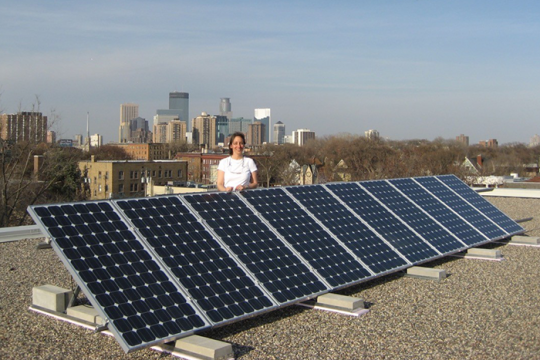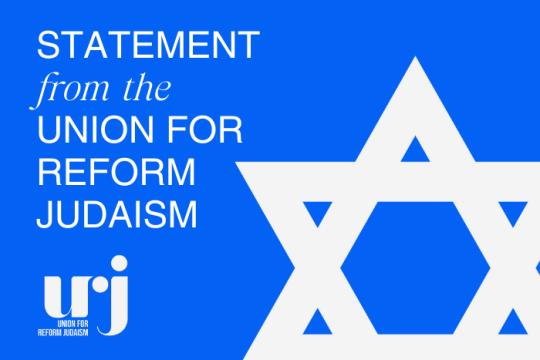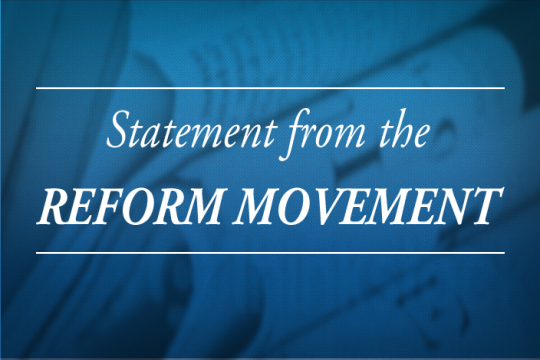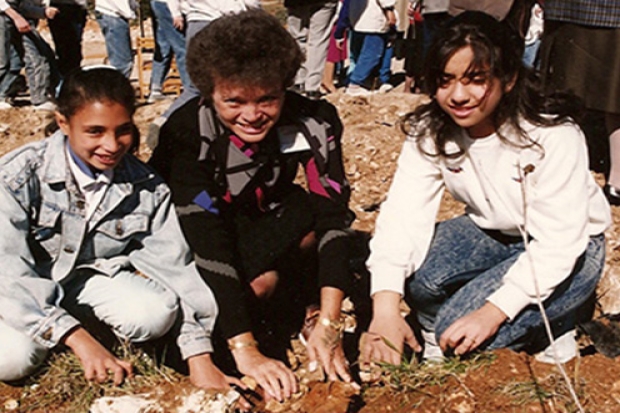
The Reform Movement is committed to protecting the environment and ensuring a just, healthy, and safe future for generations to come. The science is clear: global climate change and pollution threaten our planet and endanger our communities. We have a sacred responsibility to care for the Earth and its inhabitants by advocating for sustainable policies addressing climate change, promoting clean air and water, and protecting wildlife. In doing this work, we must also ensure environmental justice, protecting those who have been disproportionately impacted by climate change and advocating for a just transition away from fossil fuels. Through our environmental advocacy, we carry on a Jewish tradition of stewardship and partnership in the ongoing work of Creation dating back to Genesis.
Why Should Jews Care?
The Torah teaches that humankind was created on Earth, in part, to care for and protect God’s creation (Genesis 2:15). The Talmudic concept of bal tashchit, “do not destroy,” was developed by the rabbis as an assertion of God’s holy ownership of the land. We show our commitment to Creation and to each other by preventing the destruction and degradation of our planet. As is said in a powerful Midrash, “Do not destroy My world, for if you do, there will be nobody after you to make it right again.” (Midrash Ecclesiastes Rabbah 7:13). It is our responsibility to preserve, protect, and nourish our planet. We have the power to take action to create a healthy and just future for ourselves and generations to come.
Take Action
Urge Congress to Make Polluters Pay for Climate Change
We must take bold, collective action in order to protect our communities from climate-exacerbated disasters. Introduced by Senator Chris Van Hollen (MD) and Rep. Jerry Nadler (NY-12), the Polluters Pay Climate Fund Act would require the biggest corporate polluters to pay their fair share for the consequences of their climate-changing emissions, funding a just transition towards a clean-energy economy and climate resilience. Tell your elected officials to Make Polluters Pay!
What's New


A Jewish Response to Environmental Stewardship: LEEDing the Way

Teens from New York Speak About Environmental Justice
Related Press Releases

Leading Reform Movement Body Fights Climate Crisis Through Investment Strategies

The Reform Movement's Campaign for Climate Justice Concludes with Major Victory to Limit Soot Pollution

Reform Jewish Leader Celebrates Passage of the Inflation Reduction Act

Reform Judaism's Positions & Resolutions on Environment and Climate Change
Learn more about the position of the Reform Movement on these key issues, and read the formal resolutions by URJ and CCAR.

Every Voice, Every Vote
The Reform Jewish Movement’s Every Voice, Every Vote Campaign is a nonpartisan effort, grounded in our Jewish values and commitment to racial justice, to strengthen our democracy by encouraging and protecting voter participation.
Engage Your Congregation

Create a "Green Team"
One congregation shares how a dedicated, hands-on team is guiding its sustainability efforts and working to reduce the synagogue’s carbon footprint.

Plan Your Own Mitzvah Day
Plan a congregational Mitzvah Day that includes clean-up projects or other projects related to environmental justice. This guide outlines the planning process.

Host a Tu BiShvat Seder
The Tu BiSh’vat celebrates our relationship with nature, but it's also a time to look at our impact on the world around us and commit to changing the way we interact with our environment.
Contact our Legislative Assistants
For more information on this issue, contact Daniel Block.
What Our Partners are Doing
RAC Email Sign Up
Learn more about the RAC's key issues and get involved by signing up for the legislative updates newsletter.

